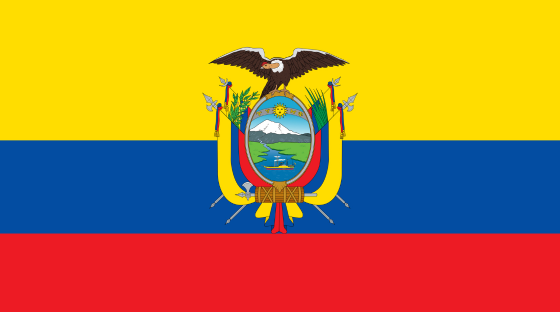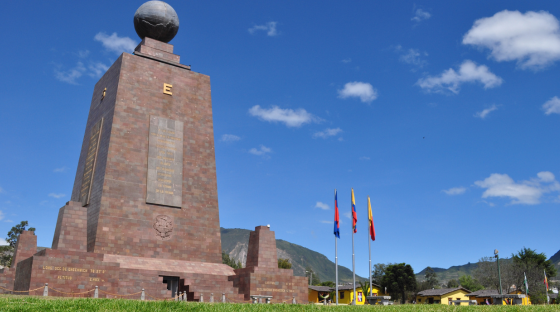-
Services
-
Software Project Delivery
-
Services
-
Solutions
-
Technologies
-
-
Network
-
Discover
-
Regions
-
Industries
-
Must-Read Guide
-
2026 Global Software Outsourcing Rates and Trends GuideDiscover why rates are just one aspect of the Accelerance Global Software Outsourcing Rates & Trends Guide, which offers valuable insights into the software development landscape.
-
-
-
Resources
-
Our Resources
-
Newest White paper
-
Aviation Ecosystem Modernization: A Holistic Approach for Meaningful TransformationModernize aviation by integrating people, processes, technology, and data
-
-
New eBook
-
 The True Cost of Software DevelopmentHidden costs can wreck your budget. Our new eBook breaks down the true cost of outsourcing—get your copy to stay ahead.
The True Cost of Software DevelopmentHidden costs can wreck your budget. Our new eBook breaks down the true cost of outsourcing—get your copy to stay ahead.
-
-
Featured White paper
-
Flow & Process OptimizationIn this white paper, you'll learn to streamline workflows, improve change management, and accelerate results.
-
-
-
About
-
About Accelerance
-
Our History
-
Accelerance: Our HistoryThere's great talent everywhere and great teams everywhere, which is the basis of the Accelerance model.
-
-
Software Without Borders
-
New Episode Every Week!Tune into our podcast Software Without Borders, the essential listen for technology leaders and business owners in the software sector who crave insights from the industry’s top minds.
-
-
Andy's Book
-
Synergea: A Blueprint for Building Effective, Globally Distributed Teams in the New Era of Software DevelopmentPeople are first and locations are secondary when it comes to software development success.
-
-
- Our Clients
Ecuador

Overview
A nation of budding entrepreneurs, Ecuador is a promising location for software outsourcing development due to its strong education system and the availability of highly skilled programmers and developers. Scaling these companies remains a challenge, as does the high proportion of workers employed in the informal sector.
Currently, the country is facing serious turmoil following the outbreak of armed conflict in early 2024 as organized crime groups struck back against a government crackdown. President Daniel Noboa ordered the military to carry out operations to neutralize armed groups and extended a nationwide state of emergency. In April 2024, Naboa gained a substantial mandate for strong securities measures in a constitutional referendum.
The Accelerance Global Network is the most curated list of high-quality global teams ever assembled.
60
Developers
Total number of developers in our certified partner network by country
2
Certified Partners
Total number of certified partners in our global network by country.
6.5hrs
Time Travel (From NY)
Average flight time from NY to the major cities in the country.
82
Partner Innovation capability
The score reflects investment in STEM progrms and IT funding by country.
84
Partner Skill Level
Level of workforce skills and quality of education, including factors such as digital literacy, interpersonal skills, etc.
77
Partner Global Competitiveness
National productivity based on 12 core pillars, including government policy, infrastructure, economic stability, etc.
High
Software Outsourcing Readiness
Overall rating, based on the maturity of the tech sector, socio-political conditions, and on-the-ground research by Accelerance.
.png?width=600&height=375&name=Untitled%20design%20(38).png)
Talent Pool & Education
Ecuador stands out as a world leader in early entrepreneurial activity, according to a recent Global Entrepreneurship Monitor report, with almost one in three adults in Ecuador starting or running a new business in 2023. The country had the highest levels of both new and established entrepreneurship of the 45 economies surveyed. Many startups and small businesses, however, still face economic and political challenges to scale. In addition, more than half of all employment is estimated to be in the informal sector (the black economy).
E-commerce boomed during the pandemic and internet penetration, especially through cell phones, is strong and infrastructure reliable. Ecuador’s ICT market is predicted to continue its steady growth. Globaldata.com estimated the sector would grow in value from $4.45 billion in 2022 to $7.76 billion by 2027, a compounded annual growth rate of 11.77%. This growth is reflected in data from the Ecuadorian Chamber of Innovation and Technology (CITEC), which recorded that the number of tech companies had grown from approximately 500 in 2011 to 3000 in 2023. Established tech companies tipped to do well include e-commerce platform TecnoMega, independent service network Broadnet, and IT services integration specialist Dos.
Most of the country’s well-established developers are based in the capital, Quito, where the government was the major tech client before the emergence of the nearshore outsourcing market. Guayaquil and Cuenca Loja also have thriving developer communities.
Language
The primary language is Spanish. Very few Ecuadorians speak English beyond those involved in tourism and professional circles. However, the penetration of English is higher in the main cities and within the business sector.

Economic Outlook
Recovery from the slowdown triggered by the pandemic is ongoing. The health crisis exposed structural weaknesses such as a dependence on crude oil revenue, one of Ecuador's main exports, limited access to capital markets, sluggish private sector activity, and unequal access to public services. Half of respondents to Global Entrepreneurship Monitor’s Adult Population Survey reported their household income had fallen in 2023.
Although Ecuador has reduced the fiscal deficit, the country faces the long-term challenge of an expected decline in oil prices associated with global decarbonization efforts, according to an International Monetary Fund report. In addition, it must seek to build a fiscal buffer as it works to lower its carbon emissions and absorb the economic impact of environmental developments, such as the historic referendum to halt the development of all new oil wells in the Yasuní National Park in the Amazon.
External economic pressures, such as a downturn in the world’s major economies, increased international interest rates, and food price inflation remain challenging whereas continued IMF support and an upturn in early 2024 in the price of crude oil are positive for the country’s fiscal position.
Political Conditions
The political situation in Ecuador is highly polarized and fragmented. In mid-2023, incumbent president Guillermo Lasso, who was facing an impeachment trial, called an early election, invoking a provision incorporated into the country’s constitution in 2008 in response to chronic political instability. Lasso’s government faced multiple challenges, including an economy struggling to rebuild from the pandemic, a dramatic rise in lawlessness, inexperience within his own party, and a cabal within parliament loyal to former populist president Rafael Correa, who led the country from 2007 to 2017.
In a somewhat surprise result, business heir Daniel Noboa, 35, was elected president in October 2023. Naboa is the son of banana baron Alvaro Noboa, who made multiple unsuccessful attempts to become president. Noboa junior, who formed the National Democratic Action party ahead of the election, promised to crack down on lawlessness, beef up security at sea and air ports (hotspots for drug smuggling), and to balance Ecuador's foreign debt obligations with the needs of the population. In January 2024, Noboa deployed the army in response to a spate of fatal shootings by organized crime groups, and labeled 22 gangs as "terrorists" who were to be treated as "a military objective".
In a constitutional referendum in April 2024, Ecuadorans strongly supported a raft of security measures Naboa says will help him fight sharply increased crime. These include joint police-military patrols, the extradition of wanted criminals and longer sentences for terrorism and murder.
Learn more about our customer stories.
Looking for a customer story in a specific technology or industry? Discover compelling customer narratives within a specific technology or industry that resonate with your unique software development needs.
